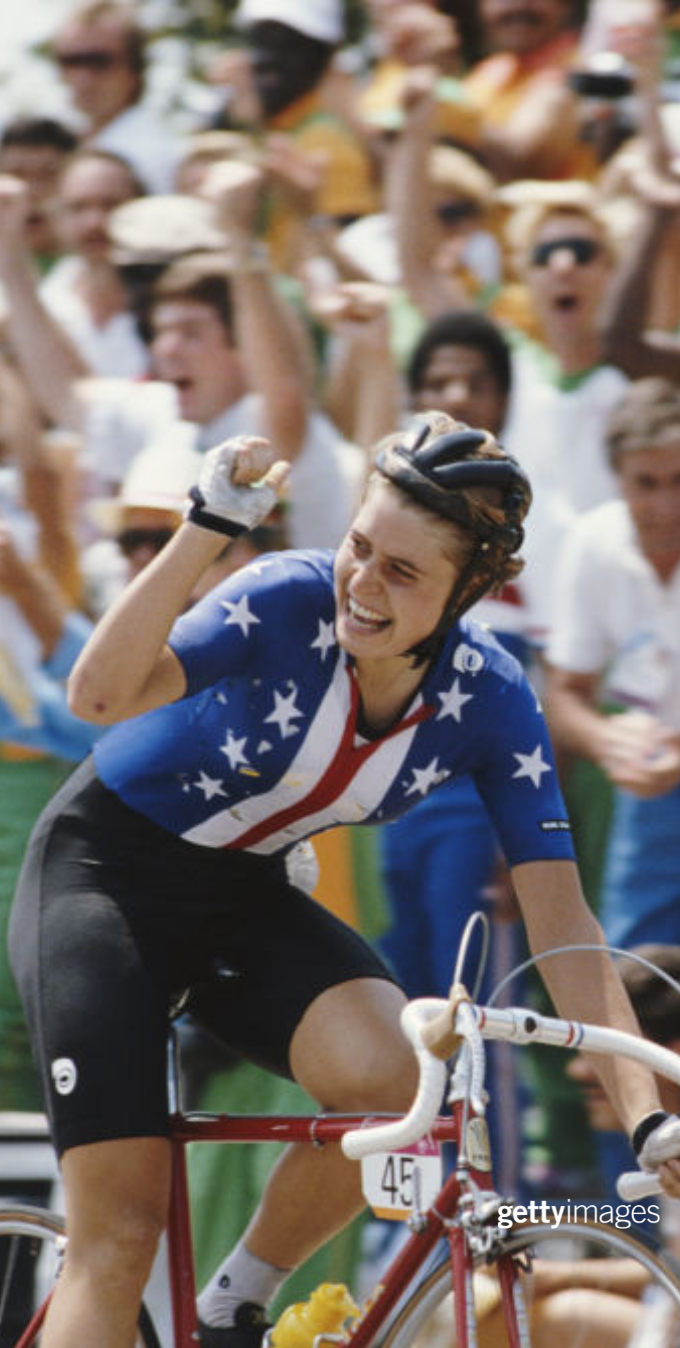
Pioneering Triumphs: Milestones for Women in the 1932 and 1984 Olympic Games
By: LA28 Staff
In celebration of Women’s History Month, LA28 is looking back at the female athletes who ushered in a new era of representation and inspired future generations of athletes with their unprecedented athletic feats.
The Olympic and Paralympic Games are all about pushing limits and bringing the world together, and when it comes to Host Cities, Los Angeles has truly made its mark. As the Host City for the 1932 Games, when women first stepped onto the field of play to throw javelins, to 1984, when female athletes took center stage with groundbreaking performances, Los Angeles has been at the forefront of breaking barriers and making history.
Although the first modern Olympic Games took place in Athens, Greece in 1896, it would be another four years before women could participate in sporting events at Paris 1900.
From the Olympic Summer Games 1900 to 1928, women were allowed to participate in a limited number of sports including Croquet, Golf, Sailing, Archery, Tennis, and select events in Track and Field.
The Olympic Games 1932 and 1984 marked pivotal moments in women's sports, with the introduction of several new events that expanded athletic opportunities.

The 1932 Games
1. Javelin Throw
The 1932 Games was the first time women were allowed to compete in the Javelin Throw event. Multi-sport American athlete, Mildred “Babe” Didrikson, won gold, setting an Olympic record with a throw of 43.69 meters.
Medalists:
Gold: Babe Didrikson, United States
Silver: Ellen Braumüller, Germany
Bronze: Tilly Fleischer, Germany
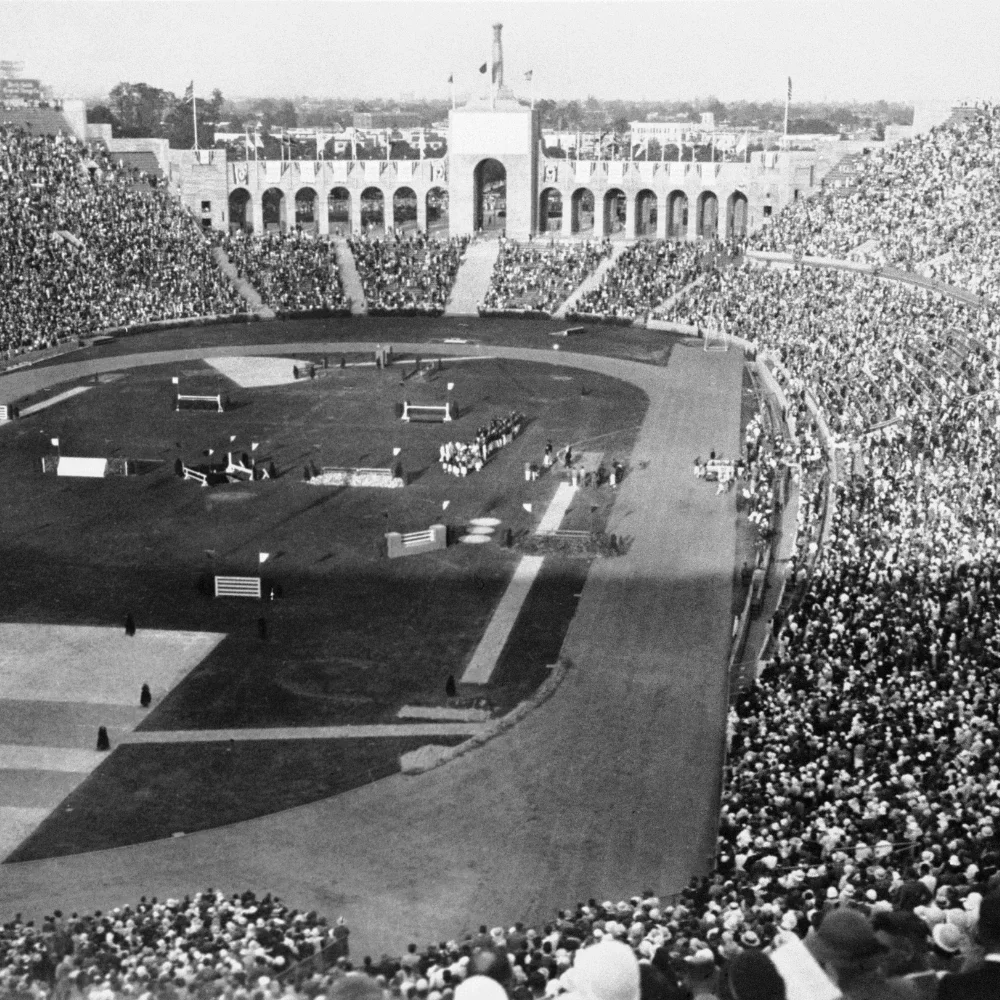
2. 80m Hurdles
At the 1932 Games, Didrikson took home her second gold medal in another debut event—the 80m Hurdles. This event continued to be part of the Summer Games until it was replaced at Munich 1972 by the 100m Hurdles event.
Medalists:
Gold: Babe Didrikson, United States
Silver: Evelyne Hall, United States
Bronze: Marjorie Clark, South Africa
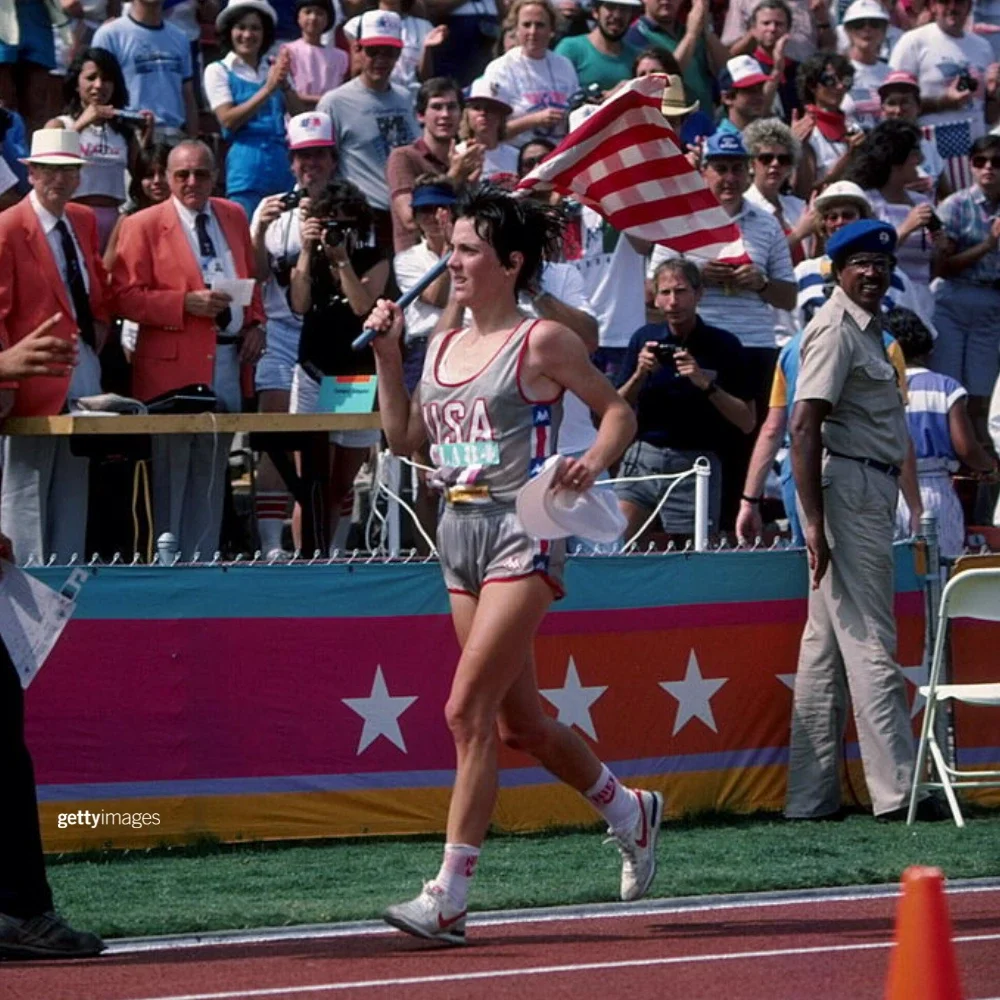
The 1984 Games
1. Women’s Marathon
The 1984 Games signified the first time women were allowed to compete in the Marathon event—nearly ninety years after the men’s Marathon debuted at the inaugural modern Olympics in 1896. The 1984 winner, Joan Benoit, is currently the first and only American woman to win the title of Olympic champion.
Medalists:
Gold: Joan Benoit, United States
Silver: Grete Waitz, Norway
Bronze: Rosa Mota, Portugal
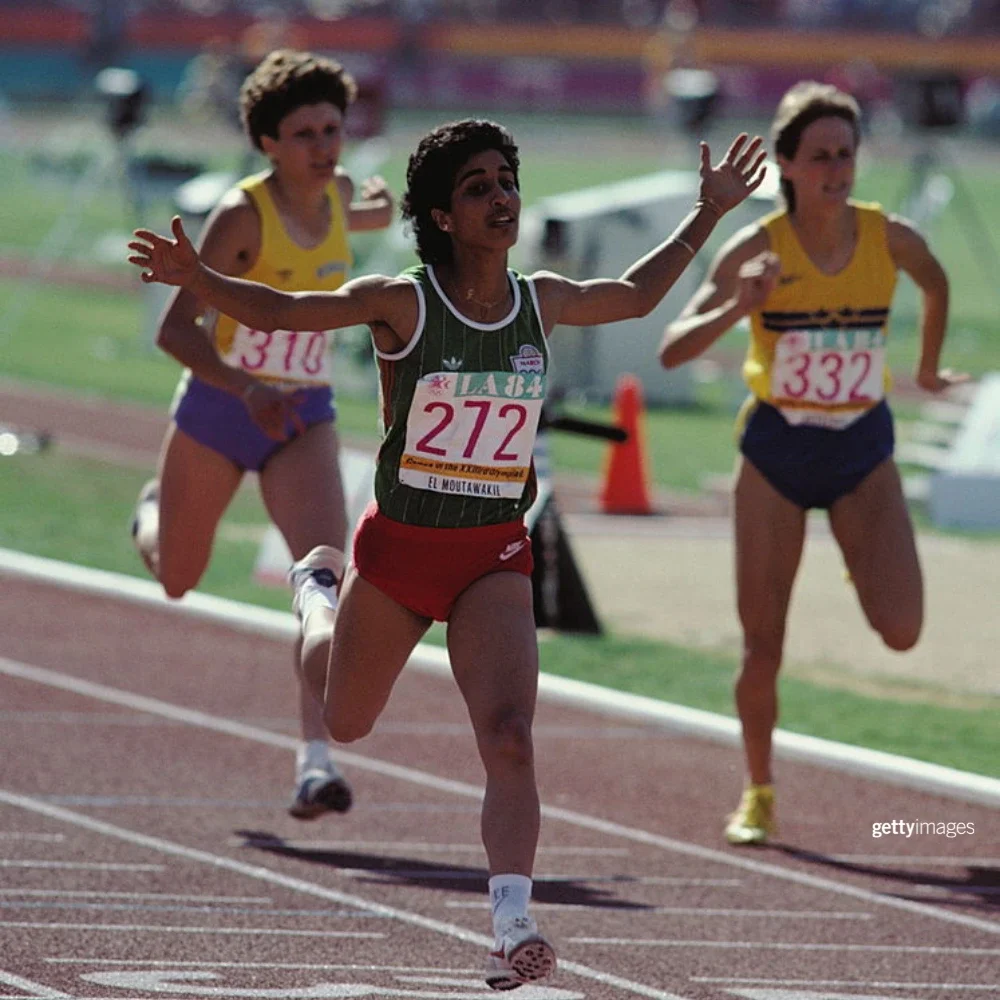
2. 400m Hurdles
The 400m Hurdles represented multiple monumental moments for women—it was the first time women were allowed to compete in the event, and gold medalist Nawal El Moutawakel’s historic victory made her the first Moroccan, the first Arab woman, and the first woman from a Muslim-majority country to win Olympic gold.
Medalists:
Gold: Nawal El Moutawakel, Morocco
Silver: Judi Brown, United States
Bronze: Cristieana Cojocaru, Romania
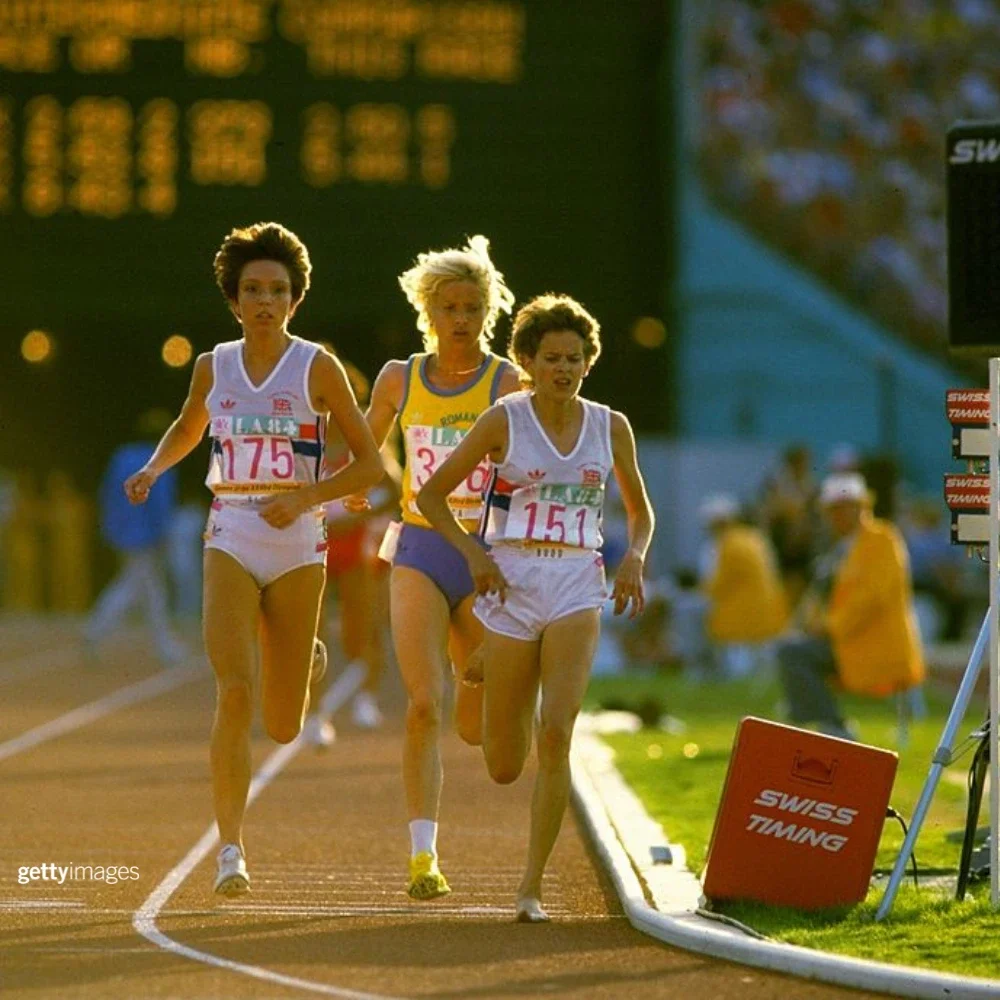
The 3000m Race for women first debuted at the 1984 Games and was part of the Olympics until it was replaced by the 5000m Race at the Olympic Games Atlanta 1996.
Medalists:
Gold: Maricica Puică, Romania
Silver: Wendy Smith-Sly, Great Britain
Bronze: Lynn Williams, Canada
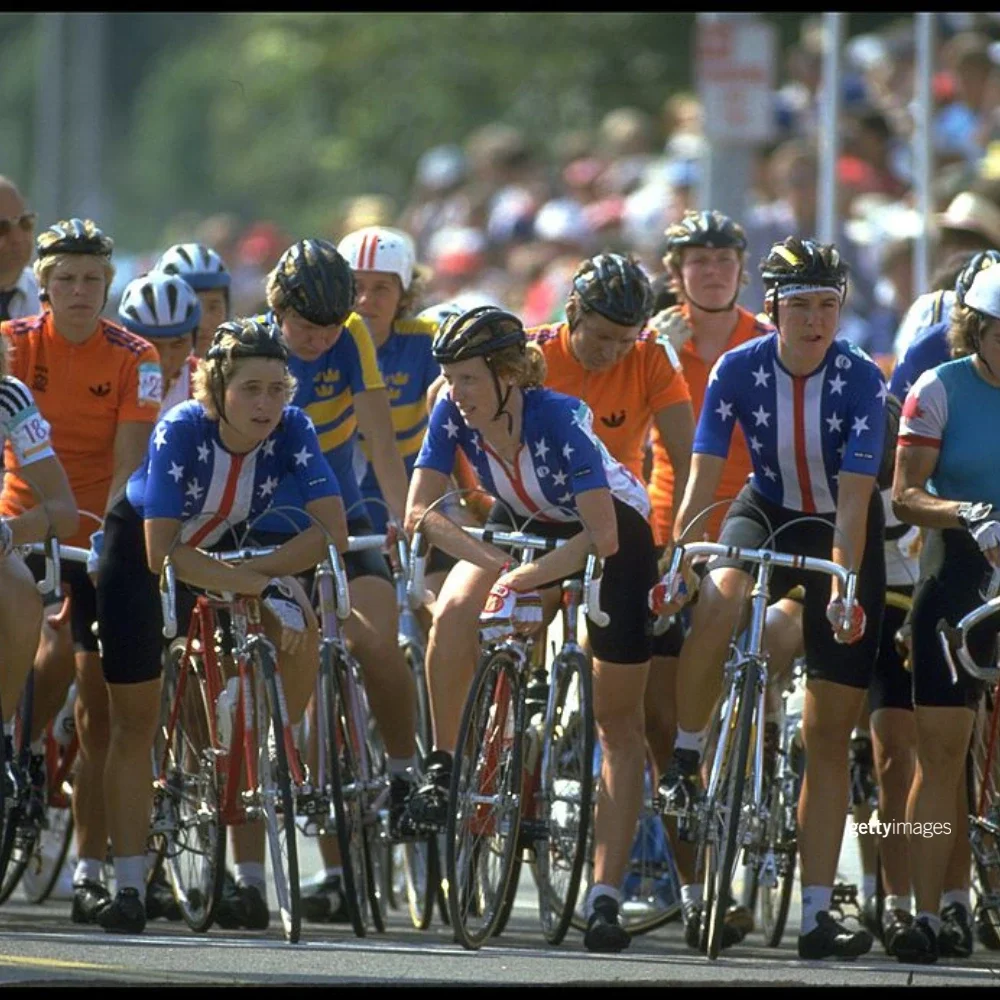
For the first time in 1984, women’s Cycling was included in the Olympics, with cyclists racing along major roads in Mission Viejo, located in Orange County, California. Before gold medalist, Connie Carpenter, turned to Olympic Cycling, she competed in Olympic Speed Skating in Japan at the Olympic Winter Games Sapporo 1972. Silver medalist, Rebecca Twigg, became a student at the University of Washington at the age of 14 and started riding for the university’s cycling team at the age of 17.
Medalists:
Gold: Connie Carpenter, United States
Silver: Rebecca Twigg, United States
Bronze: Sandra Schumacher, West Germany
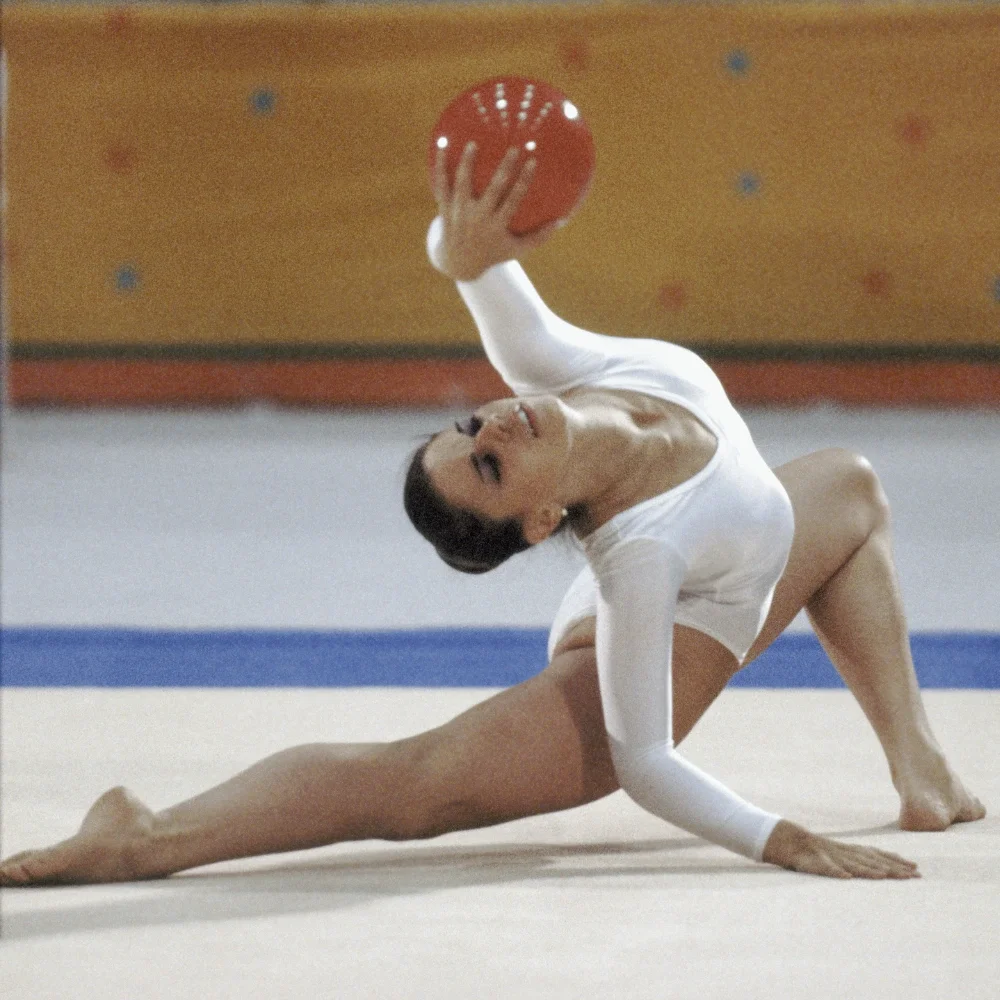
Rhythmic Gymnastics made its Olympic debut at the 1984 Games and featured the individual all-around event, a discipline that to this day remains exclusive to the women's field.
Medalists:
Gold: Lori Fung, Canada
Silver: Doina Staiculescu, Romania
Bronze: Regina Weber, West Germany
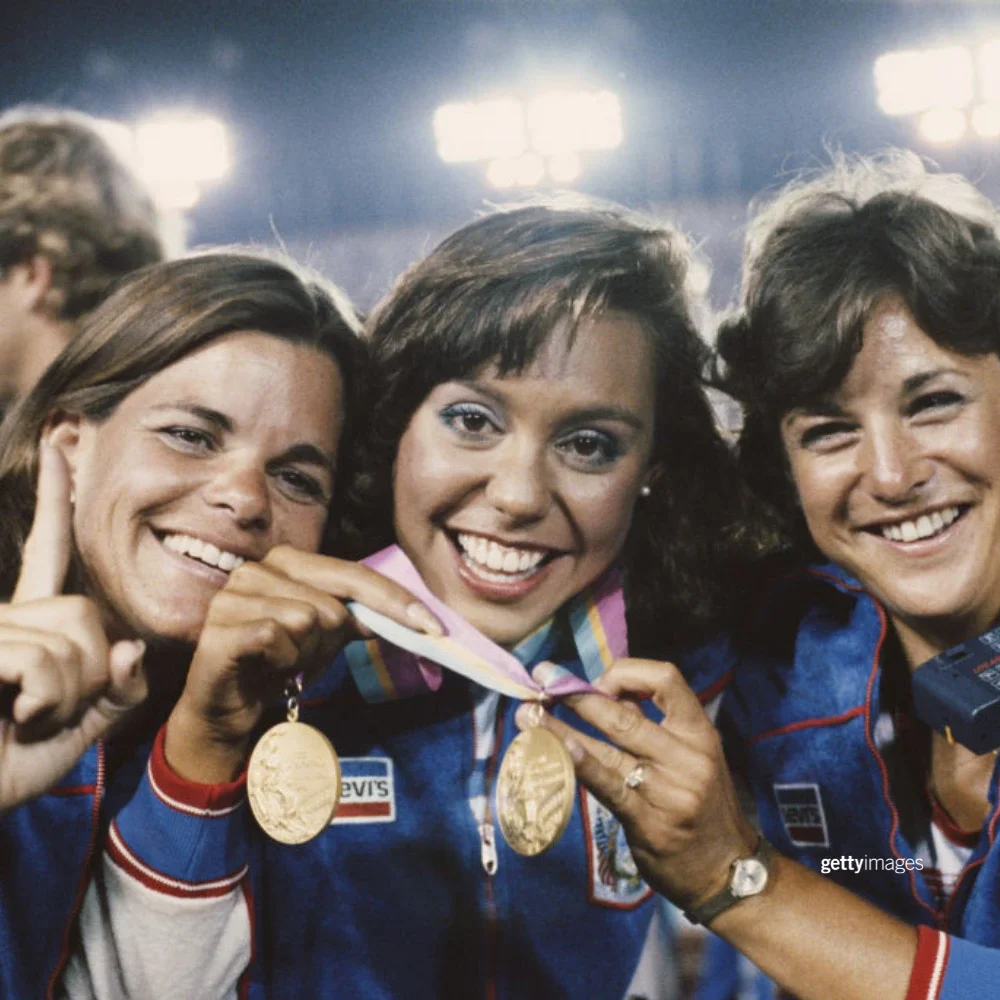
6. Artistic Swimming
Artistic Swimming, previously recognized as Synchronized Swimming, was first held at the 1984 Games with both solo and duet events, both exclusively for women. Since then, the event has evolved into a team competition format. U.S. gold medalists Tracie Ruiz and Candace "Candy" Costie competed as children and later as teammates for the University of Arizona. 
Solo Medalists:
Gold: Tracie Ruiz, United States
Silver: Carolyn Waldo, Canada
Bronze: Miwako Motoyoshi, Japan
Duet Medalists:
Gold: Candy Costie and Tracie Ruiz, United States
Silver: Sharon Hambrook and Kelly Kryczka, Canada
Bronze: Saeko Kimura and Miwako Motoyoshi, Japan
A Legacy of Progress
These historic moments at the 1932 and 1984 Games not only elevated female athletes to new heights but also laid the foundation for the continued fight for equity in sports today. The Olympic Games Paris 2024 celebrated a milestone in gender equality, with women making up nearly 49% of all athletes, achieving parity for the first time.
The 2028 Games will continue this progress by introducing new women’s events like Flag Football and bringing back Softball, which last appeared in Beijing 2008. These additions reflect ongoing efforts to expand opportunities for female athletes and increase representation across sports. With each Olympic cycle, the program continues to evolve, shaping a more inclusive landscape for future competitors.
